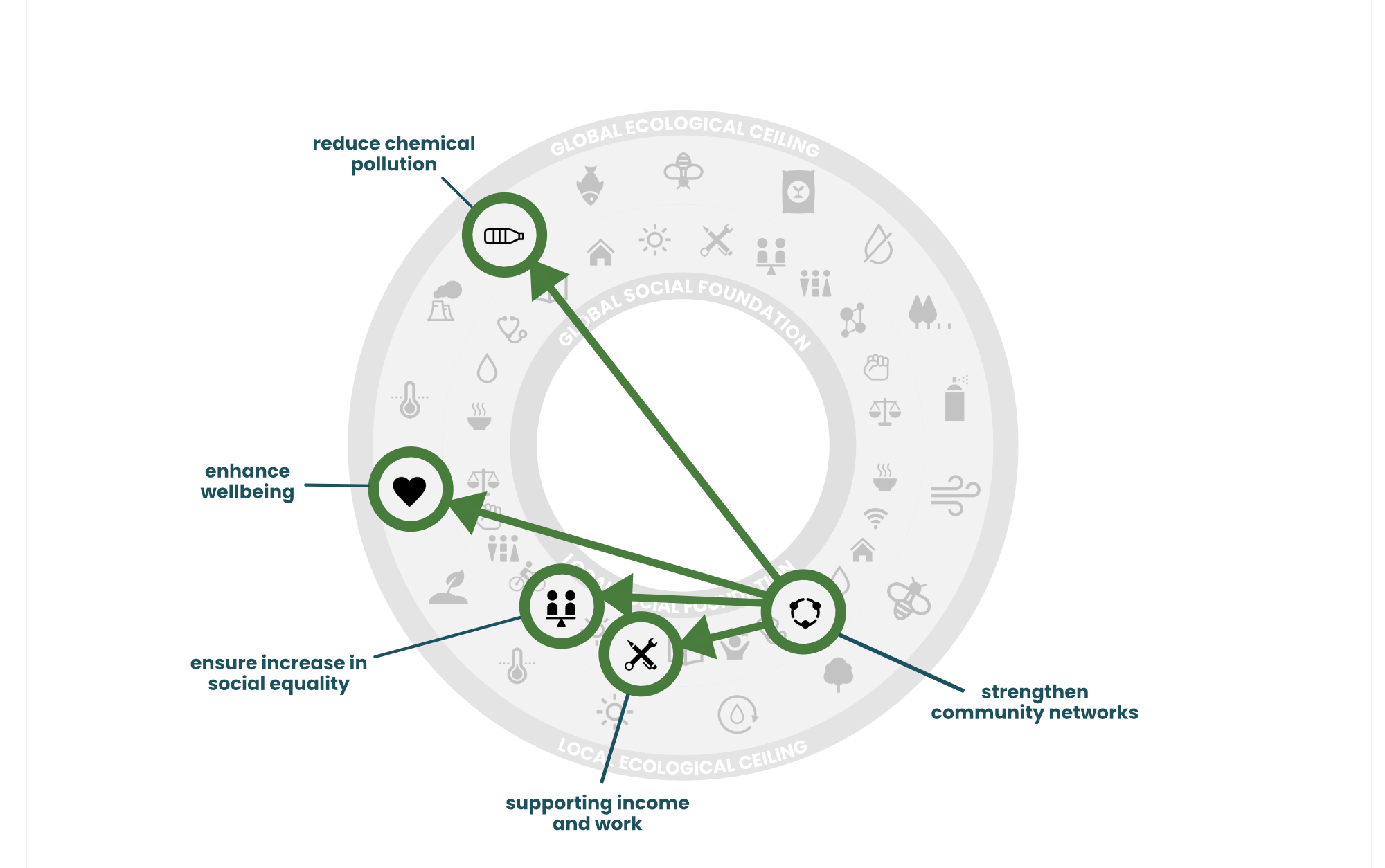Case Study 2 - Glasgow Tool Library

Glasgow Tool Library (GTL) is a grassroots, circular economy initiative that adheres to Doughnut Economics principles through innovative, community-focused design. By delivering circular and distributive outcomes at a city scale, GTL helps shape a fairer, more sustainable Glasgow.
GTL contributes to the vision laid out in the Thriving Glasgow Portrait through: increasing social equity, supporting income and work, strengthening community networks, enhancing wellbeing, and reducing pollution and carbon emissions.
For more information, visit the Glasgow Tool Library Website.

Glasgow Tool Library and the Doughnut: Diagram showing the impact the work of Glasgow Tool Library has on themes within the Doughnut Economics model.
As GTL puts it, ‘we have too much stuff, but we still have inequality’, and their work directly addresses this contradiction. The organisation’s central goal is extending the lifecycle of underused and unwanted goods. With a growing library of over 1,000 donated items, GTL offers affordable access to tools for DIY, hobbies, and creative projects. Now with over 800 members, the organisation enhances the wellbeing of local communities while addressing the environmental and social issues of overconsumption.
By reducing the demand for new products and purchases, GTL has helped save an estimated 80 tonnes of CO₂ emissions, while reducing costs to members. The organisation’s greatest impact is seen in behavioural shifts by offering a practical route to positive climate action through sharing, developing repair skills and restoring knowledge in the community.
Fundamental to GTL’s work is its volunteer programme, engaging around 40 people across tool maintenance, customer service, and marketing. Volunteers come from a range of backgrounds, including those who are unemployed, retired, and those new to Glasgow, all looking to develop new skills. GTL is also creating green jobs by hiring a fulltime repair technician, demonstrating how circular economy practices can generate both environmental and social value. The organisation’s local impact extends through its community projects, such as supporting Shakespeare Street Youth Group to redecorate their space, and working with Possobilities to build accessible picnic benches. Such initiatives strengthen local networks and demonstrate the power of shared resources in addressing community needs.
GTL’s bold vision for the future is to open an extensive sharing centre that brings together multiple lending libraries, such as tools, sports gear, and AV equipment, all under one roof. The expanded service would further prioritise sharing over individual ownership, enabling equitable participation by democratising access to expensive or specialised equipment. The organisation faces the challenge of inadequately representing certain groups in the city amongst its members. GTL hopes that deepening engagement with groups such as young people, parent-toddler groups and those living in socio-economically deprived areas will highlight items these communities need so they can continue breaking down social barriers to library access.
While lending tools remains its core service, GTL’s anchor is reshaping relationships between people, things, and the planet. The organisation continues to work towards a thriving city through a joyful and creative reimagining of ownership, proving that a fairer, greener, circular economy is already underway.
Further information:

